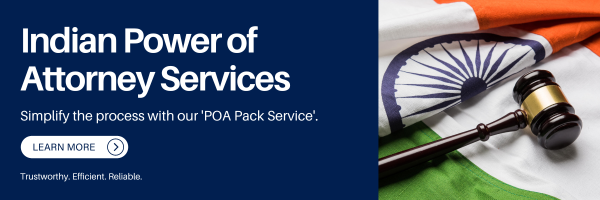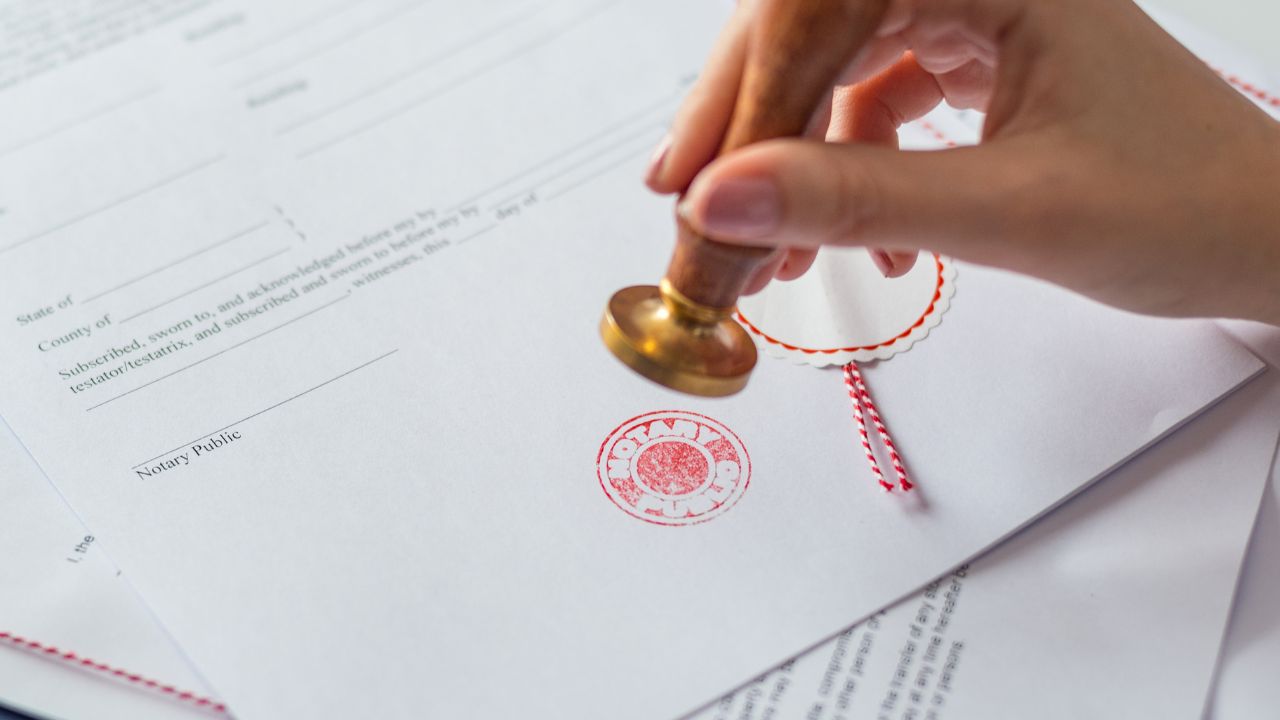A Power of Attorney (POA) is a legal instrument that holds immense significance in India’s legal landscape. It grants an individual the power to confer authority upon another person to act on their behalf in various matters. This could range from making financial decisions to executing legal documents. Understanding the nuances of the Indian Power of Attorney is pivotal for ensuring the smooth execution of transactions and legal processes. In this post, we summarise some of the main aspects of the Indian Power of Attorney document and process.
Understanding an Indian Power of Attorney
- Definition and Importance: A Power of Attorney is a legal arrangement that allows one person (the principal) to delegate specific rights and responsibilities to another person (the agent or attorney-in-fact). This can be of immense importance when the principal is unable to manage their affairs due to physical absence, illness, or other reasons.
- Key Terminology: Familiarizing oneself with terms like “principal,” “agent,” “attorney-in-fact,” and “donor” is crucial in comprehending the roles and responsibilities involved in a Power of Attorney.
Types of Power of Attorney in India
- General Power of Attorney: This type grants broad authority to the agent, allowing them to act on behalf of the principal across various matters.
- Special Power of Attorney: A more limited form, this specifies the agent’s authority within a particular domain, such as handling real estate transactions.
Common Uses of Power of Attorney
- Real Estate Transactions: Power of Attorney is often employed for property buying and selling, allowing the agent to complete legal formalities, sign documents, and conduct transactions.
- Financial Transactions: Agents can manage financial affairs, including banking, investments, and tax matters.
- Legal Proceedings: POAs enable representation in legal matters, such as court proceedings or contract negotiations.
- Business Operations: Business owners use POAs to authorize agents to handle business affairs in their absence.
Creating a Power of Attorney in India
- Legal Requirements: POAs must adhere to legal specifications outlined in the Indian Contract Act, 1872, and Power of Attorney Act, 1882.
- Choosing an Agent: The agent should be someone trustworthy, as they hold considerable authority.
- Drafting the Document: The POA document must be clear, specifying the extent of the agent’s authority.
- Registration and Notarization: Depending on the type of POA, registration and notarization may be required for validity.
Creating a Power of Attorney outside of India
- Drafting the document: The POA must be drafted in accordance with Indian law
- Execution: Once prepared, the document must be executed in the proper manner that is acceptable to the Indian authorities.

Key Clauses and Considerations
- Scope of Authority: Clearly defining the agent’s powers prevents misuse.
- Limitations on the Agent: Restrictions can be placed on specific actions the agent can or cannot take.
- Duration and Revocation: POAs can be time-bound or revoked by the principal.
- Compensation and Expenses: Addressing compensation, if any, and expense reimbursement is essential.
Registration and Stamp Duty
- Importance of notarisation: POAs must be notarized to be accepted
- Applicable Stamp Duty: Different states levy varying stamp duties based on the value of the transaction.
- Registration Process: Registration involves submitting the POA document to the local sub-registrar office.
Revoking a Power of Attorney
- Reasons for Revocation: Principals can revoke a POA due to changed circumstances or misuse of authority.
- Revocation Process: A notice of revocation should be given to the agent, and copies of revocation documents might need to be submitted to relevant authorities.
Challenges and Pitfalls
- Misuse of Power: Improper usage of the granted authority can lead to legal disputes and financial losses.
- Lack of Awareness: Many individuals aren’t fully aware of the implications of granting a POA, which can lead to unintended consequences.
- Legal Implications: Creating a poorly drafted or improperly executed POA can lead to legal challenges and unenforceability.
To read a more in-depth post, please visit: Indian Power of Attorney Guide for NRIs.
How can we help
To discuss your Indian Power of Attorney with an experienced member of our team, call us on +442087575751 or use our contact form.
Frequently asked questions
Yes, property transactions commonly involve the use of a POA.
A POA executed in one state is generally valid in other states as well, but checking specific state laws is advisable.
Depending on the type of POA and the principal’s intent, it can be granted for a specific period or indefinitely.






